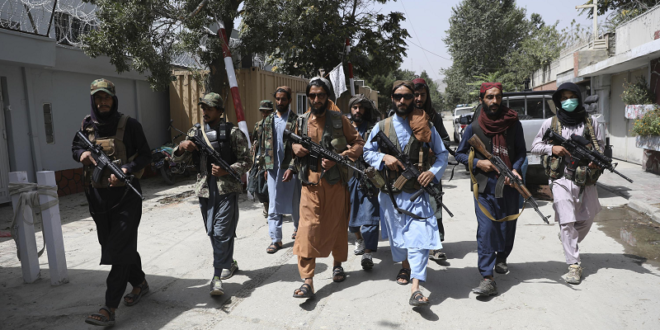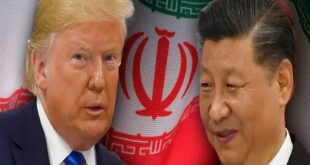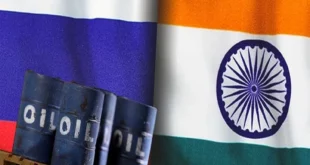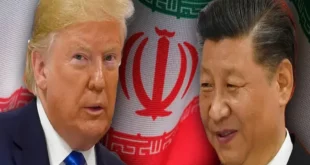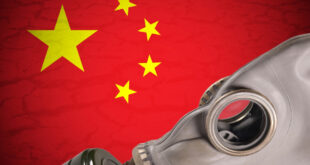The Taliban violently dispersed scattered protests for a second day Thursday amid warnings that Afghanistan’s already weakened economy could crumble further without the massive international aid that sustained the toppled Western-backed government.
The Taliban have sought to project moderation and say they want good relations with the international community, but they will face a difficult balancing act in making concessions to the West, satisfying their own hard-line followers and suppressing dissent.
A U.N. official warned of dire food shortages, and experts said the country was severely in need of cash, while noting that the Taliban are unlikely to enjoy the generous international aid that made up most of the ousted government’s budget.
The Taliban have pledged to forgive those who fought them and to restore security and normal life to the country after decades of war. But many Afghans fear a return to the Taliban’s harsh rule in the late 1990s, when the group largely confined women to their homes, banned television and music, chopped off the hands of suspected thieves and held public executions.
On Thursday, a procession of cars and people near Kabul’s airport carried long black, red and green banners in honor of the Afghan flag — a banner that is becoming a symbol of defiance. Video from another protest in Nangarhar province showed a bleeding demonstrator with a gunshot wound. Onlookers tried to carry him away.
In Khost province, Taliban authorities instituted a 24-hour curfew Thursday after violently breaking up another protest, according to information obtained by journalists monitoring from abroad. The authorities did not immediately acknowledge the demonstration or the curfew.
Protesters also took to the streets in Kunar province, according to witnesses and social media videos that lined up with reporting by The Associated Press.
The demonstrations — which came as people celebrated Afghan Independence Day and some commemorated the Shiite Ashoura festival — were a remarkable show of defiance after Taliban fighters violently dispersed a protest Wednesday. At least one person was killed at that rally, in the eastern city of Jalalabad, after demonstrators lowered the Taliban’s flag and replaced it with the tricolor.
Meanwhile, opposition figures gathering in the last area of the country not under Taliban rule talked of launching an armed resistance under the banner of the Northern Alliance, which joined with the U.S. during the 2001 invasion.
It was not clear how serious a threat they posed given that Taliban fighters overran nearly the entire country in a matter of days with little resistance from Afghan forces.
The Taliban so far have offered no specifics on how they will lead, other than to say they will be guided by Shariah, or Islamic, law. They are in talks with senior officials of previous Afghan governments. But they face an increasingly precarious situation.
“A humanitarian crisis of incredible proportions is unfolding before our eyes,” warned Mary Ellen McGroarty, the head of the U.N.’s World Food Program in Afghanistan.
Beyond the difficulties of bringing food into the landlocked nation dependent on imports, she said that over 40% of the country’s crop has been lost to drought. Many who fled the Taliban advance now live in parks and open spaces in Kabul.
“This is really Afghanistan’s hour of greatest need, and we urge the international community to stand by the Afghan people at this time,” she said.
Hafiz Ahmad, a shopkeeper in Kabul, said some food has flowed into the capital, but prices have gone up. He hesitated to pass those costs onto his customers but said he had to.
“It is better to have it,” he said. “If there were nothing, then that would be even worse.”
Two of Afghanistan’s key border crossings with Pakistan are now open for trade. However, traders still fear insecurity on the roads and confusion over customs duties that could push them to price their goods higher.
Amid all the uncertainty and fears of Taliban rule, thousands of Afghans are fleeing the country.
At Kabul’s international airport, military evacuation flights continued, but access to the airport remained difficult. On Thursday, Taliban fighters fired into the air to try to control the crowds gathered at the airport’s blast walls.
After a chaotic start in which people rushed the runway and some clung to a plane taking off, the U.S. military is ramping up evacuations and now has enough aircraft to get 5,000 to 9,000 people out a day, Army Maj. Gen. Hank Taylor said Thursday.
President Joe Biden said he was committed to keeping U.S. troops in Afghanistan until every American is evacuated, even if that means maintaining a military presence there beyond his Aug. 31 deadline for withdrawal.
In an interview with ABC’s “Good Morning America,” Biden said he thought the Taliban were going through an “existential crisis” about whether they wanted to be internationally recognized as a legitimate government. “I’m not sure they do,” he said.
The Taliban have urged people to return to work, but most government officials remain in hiding or are themselves attempting to flee. The U.S. has apparently frozen Afghanistan’s foreign reserves and shipments of dollars that help sustain the local currency, the afghani. The International Monetary Fund has cut off access to loans or other resources for now.
“The afghani has been defended by literally planeloads of U.S. dollars landing in Kabul on a very regular basis, sometimes weekly,” said Graeme Smith, a consultant researcher with the Overseas Development Institute. “If the Taliban don’t get cash infusions soon to defend the afghani, I think there’s a real risk of a currency devaluation that makes it hard to buy bread on the streets of Kabul for ordinary people.”
Smith, who has written a book on Afghanistan, said the Taliban are unlikely to ask for the same billions in international aid sought by the country’s fallen civilian government — large portions of which were siphoned off by corruption.
The Taliban have long profited off the drug trade in Afghanistan, which is the world’s top cultivator of the poppy from which opium and heroin are produced. The militants now have access to customs duties from the border crossings, which were the main source of domestic income for the previous government.
But 75% of the previous government’s budget was covered by donor countries.
“It costs a lot less to run an insurgency than it does to run a government,” said Laurel Miller, director of the Asia program at the Crisis Group, an international think tank. “The opium trade and the border crossings (are) not enough money to run a government, at least as it has been run in recent years.”
The Taliban will struggle to make accommodations to the West while satisfying the ultraconservative Muslim fighters that brought them to power after a 20-year insurgency, with the latter likely being the priority, Miller said. Even a significant shift toward moderation might not be enough for Western countries to keep the aid flowing.
“How ready is Congress going to be to vote for development assistance for a Taliban government?” she said.
 Eurasia Press & News
Eurasia Press & News
